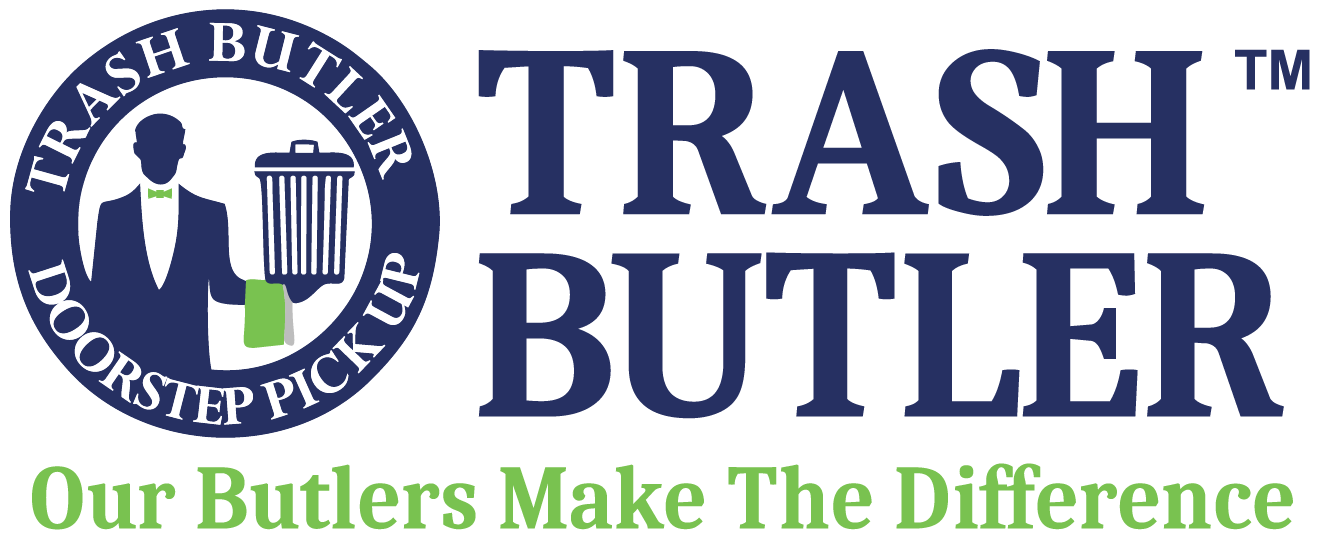Key Takeaways:
- Reduce Waste at the Source: Encourage residents to minimize waste through sustainable consumption and purchase products with minimal packaging. Educating residents about the environmental benefits of these practices can lead to significant reductions in waste generation.
- Effective Waste Segregation and Recycling: Provide segregated bins for organic, recyclable, and non-recyclable waste to facilitate proper waste management. Implement robust recycling programs to capture and reuse materials like paper, plastics, metals, and glass, reducing landfill contributions.
- Composting and Community Engagement: Promote organic waste composting to produce nutrient-rich compost for community gardens or local farms. Engaging residents in communal eco-friendly initiatives fosters community and enhances property value while promoting environmental stewardship.
Living in a modern apartment brings unique challenges for waste disposal, but it doesn’t mean sacrificing your commitment to the planet. With some creativity, you can minimize your environmental impact, especially with food scraps and yard waste.
In this article, we explore practical and eco-friendly solutions tailored for apartment residents. From innovative composting methods to efficient recycling programs, we highlight strategies that empower tenants and property managers to uphold sustainability standards without compromising convenience. Join us as we navigate the landscape of urban waste management with a focus on environmental responsibility and practicality.
Understanding Eco-Friendly Trash For Apartments
Eco-friendly trash management for apartments involves strategies and methods to minimize the environmental impact of waste generated in multi-family communities. It emphasizes reducing, reusing, and recycling materials to divert waste from landfills and reduce greenhouse gas emissions. This concept benefits the environment and often aligns with the preferences of an increasingly eco-conscious resident base.
Implementing eco-friendly trash practices in apartments can include:
- Source Reduction: Encouraging residents to produce less waste. This can be facilitated through educational campaigns about sustainable consumption and the environmental benefits of purchasing products with minimal packaging.
- Segregation of Waste: This involves separating organic waste from recyclables and non-recyclables. Segregated bins can be provided to ensure residents can easily divide their trash. This separation is crucial for effective recycling and composting, as contamination can render recyclable materials useless.
- Recycling Programs: These programs are designed to capture paper, plastics, metals, and glass for reuse. Effective recycling programs are essential for reducing the volume of waste that ends as landfill trash.
- Composting Facilities: Composting is a viable option for organic waste. It turns kitchen scraps and other organic materials into nutrient-rich compost, which can enhance soil quality and benefit community gardens or local farms.
These elements collectively define what constitutes eco-friendly trash for apartments. By adopting these practices, apartment communities contribute positively to the environment and enhance their appeal to prospective and current residents who value sustainability.
Benefits Of Eco-Friendy Waste Disposal In Apartments
Implementing eco-friendly waste disposal practices in apartment complexes provides many advantages that align with environmental stewardship and enhanced community living standards. When apartments adopt sustainable waste management systems, they contribute significantly to local and global ecological preservation efforts while providing tangible benefits to their residents.
Reduces Environmental Impact
By prioritizing recycling and composting, apartments can dramatically decrease the volume of waste sent to landfills. This reduction in landfill use conserves space and minimizes methane emissions, a potent greenhouse gas contributing to global warming.
Increases Property Value
Apartments that implement advanced sustainability practices, such as eco-friendly waste disposal, are often viewed as more attractive to potential residents who are environmentally conscious. This can increase unit demand, thereby driving up rental occupancy rates and property values.
Fosters Community Engagement
Eco-friendly initiatives create opportunities for residents to engage with their environment and each other. Programs like communal composting or recycling challenges help the planet and encourage a sense of community and shared responsibility among residents.
Enhances Resident Satisfaction
The presence of eco-friendly disposal systems often reflects positively on residents’ perceptions of their living environment. By showing that management prioritizes sustainability, residents will likely feel more content and pride in their living space, contributing to higher retention rates.
For apartment complexes looking to integrate such practices, partnering with an experienced provider like Trash Butler™ ensures that eco-friendly waste disposal is handled efficiently and effectively. Our specialized services, including the innovative doorstep valet trash collection, reinforce the commitment to convenience and sustainability valued by modern renters, thus enhancing the appeal and function of multi-family apartment communities.
Top 5 Eco-Friendly Trash Management Practices
Living in an apartment doesn’t have to limit your commitment to sustainable waste management. Here are the top 5 practices you can implement to divert green waste from landfills effectively:
Embrace Composting
Composting offers a natural and beneficial solution for organic waste like food scraps, yard trimmings, and even paper products. This process transforms waste into nutrient-rich compost, ideal for enriching soil and promoting plant growth.
- Apartment Solutions: While outdoor composting bins might not be feasible, explore alternatives like countertop composters or Bokashi composting systems. These compact options allow for effective composting within your apartment.
- Community Programs: Check with your apartment complex. Some may offer community composting initiatives where residents can collectively contribute to organic waste.
Minimize Food Waste
A significant portion of green waste originates from uneaten food. Here’s how to strategically reduce food waste in your apartment:
- Planning & Shopping: Develop meal plans and create grocery lists to avoid impulse purchases that may expire before consumption.
- Smart Shopping: Buy only what you need, and pay close attention to “use by” dates to avoid unnecessary purchases.
- Proper Storage: Understand appropriate storage methods for different food types to maximize shelf life.
- Leftover Creativity: Don’t discard leftovers! Repurpose them into new dishes to reduce waste.
Downsize Packaging Waste
Excessive packaging on food and consumer goods contributes significantly to green waste. Here are some strategies to minimize it:
- Bulk Purchases (Strategically): Consider buying in bulk for frequently used items. However, ensure you’ll use everything before expiration to prevent waste.
- Loose Produce: Opt for loose fruits and vegetables over pre-packaged options whenever possible.
- Minimal or Recyclable Packaging: Choose products with minimal or recyclable packaging to reduce waste from the outset.
Embrace Reusable Alternatives
Reduce your reliance on single-use items by incorporating reusable options into your daily life. Here are some examples:
- Cloth Bags: Replace plastic grocery bags with reusable cloth alternatives.
- Reusable Containers: Utilize reusable containers for food storage, take-out, and meal prep.
- Hydration & Coffee: Opt for reusable water bottles and coffee mugs to avoid disposable cups.
- Compostable or Reusable Utensils: Ditch disposable utensils in favor of compostable or reusable alternatives.
Partner with Eco-Conscious Waste Disposal Services
Collaborating with a waste disposal service that prioritizes sustainability can substantially affect how trash is managed in apartment communities. Services like Trash Butler™ not only ensure regular and efficient waste pickup but promote recycling and eco-friendly practices as part of their operations.
How To Implement Composting In Apartment Living
Implementing composting in an apartment setting can seem challenging due to space constraints and the need for proper management to avoid odors and pests. However, with thoughtful planning and the right approach, composting can be a very accessible and rewarding option for apartment residents keen on reducing their ecological footprint. Let’s explore a breakdown of how to implement composting in your apartment for eco-friendly green waste disposal:
Choosing Your Composting Method
- Space Constraints: Since space is often limited in apartments, traditional outdoor compost bins might not be an option. Luckily, several methods work well in smaller living areas:
- Countertop Composters: These compact bins collect food scraps on your countertop. They often come with a charcoal filter to minimize odors.
- Bokashi Composting: This method uses a special fermenting bin with inoculated bran to break down food waste anaerobically (without oxygen). The resulting product isn’t traditional compost but can be added to soil for enrichment.
- Consideration Factors: Choose a method that aligns with the amount of food waste you generate, your budget, and your comfort level with potential odors (Bokashi has a more pungent odor than countertop composters).
Setting Up Your Indoor Composter
- Location: Place your composter in a cool, dry location with good ventilation, like under a sink or on a well-ventilated counter.
- What to Add: Focus on food scraps like vegetable peels, fruit cores, coffee grounds, and eggshells. Avoid meat, dairy, and oily items, which can attract pests and create odors.
- Maintaining Balance: For optimal decomposition, balance “brown” (dry) and “green” (wet) materials. Brown materials like shredded paper, cardboard egg cartons, or dry leaves add carbon.
- Moisture Management: If the compost seems dry, add a sprinkle of water, but avoid overwatering, which can lead to odors.
Utilizing Your Compost
- Apartment Restrictions: Check with your apartment complex about any limitations on using compost from indoor systems.
- Community Options: Some apartments offer community composting bins where residents can collectively contribute food scraps.
- Urban Gardens or Local Programs: Find nearby community gardens or city programs that accept composted materials.
Additional Tips
- Freeze Scraps Until Composting: Store food scraps in the freezer to prevent odors and extend their shelf life until your composter is full.
- Small Batches, Frequent Use: Since indoor composters have limited capacity, aim for frequent additions of small batches to avoid overloading and potential odor issues.
By implementing these steps, you can effectively compost your food scraps in your apartment, reducing your green waste footprint and creating nutrient-rich compost for your plants (or local green initiatives)!
Choosing Biodegradable Packaging: A Green Option
While composting tackles waste disposal within your apartment, another key approach to eco-friendly living is choosing products with biodegradable packaging at the outset. Here’s how biodegradable packaging benefits apartment dwellers and the environment:
Benefits of Biodegradable Packaging
- Reduced Landfill Waste: Biodegradable materials decompose naturally, unlike traditional plastics that can linger in landfills for centuries. This minimizes your overall contribution to landfill waste, even in an apartment setting.
- Enhanced Composting: Some biodegradable packaging can be composted alongside your food scraps, further reducing waste and creating valuable compost for your plants (or local programs).
Finding Biodegradable Packaging Options
- Look for Certifications: Seek products with certifications that indicate biodegradability, such as “OK Compost” or “USDA Certified Biobased Product.” These labels ensure the packaging will decompose under specific conditions.
- Material Awareness: Familiarize yourself with common biodegradable materials like:
- Plant-based plastics: Made from renewable resources like corn starch or cellulose, these decompose under specific composting conditions.
- Mushroom packaging: Emerging technology utilizes mycelium (fungus root structures) to create sturdy, biodegradable packaging.
- Paper and Cardboard: These classic options are readily recyclable and decompose naturally in landfills.
Challenges and Considerations
- Availability: Traditional options are more widely available and affordable than biodegradable packaging options.
- Composting Compatibility: Ensure the packaging is compatible with your composting method (indoor composter vs. community program). Some require industrial composting facilities.
- Consumer Education: Look for transparent brands about their packaging materials and how to dispose of them properly.
Tips for Apartment Living
- Talk to Your Local Stores: Express your interest in biodegradable packaging options. This can encourage stores to stock more eco-friendly products.
- Support Sustainable Brands: Seek brands that prioritize sustainability and utilize biodegradable packaging.
- Embrace Reusables: Even with biodegradable options, consider using reusable containers and shopping bags whenever possible to minimize packaging waste.
By choosing biodegradable packaging, you contribute to a more sustainable future, even in an apartment setting. Remember, every small step towards reducing waste makes a difference!
Innovative Technologies For Sustainable Waste Disposal
While traditional composting and selecting biodegradable packaging are excellent eco-friendly practices for apartment living, the future holds promise for even more sustainable waste disposal solutions. Let’s explore some emerging technologies that may soon revolutionize waste management in multi-unit dwellings:
In-Sink Composters
Imagine a garbage disposal unit specifically designed for food scraps. These innovative in-sink composters grind food waste into a fine slurry that can be easily disposed down the drain. However, widespread adoption faces challenges like potential plumbing issues and limitations on what food scraps can be processed.
Smart Waste Management Systems
These apartment-building-wide systems utilize sensors in trash chutes or bins to monitor waste levels and fullness. This data is then used to optimize waste collection schedules, reducing unnecessary pickups and fuel consumption. Additionally, some systems might integrate AI for waste sorting, potentially improving recycling efficiency.
Vermicomposting
This method utilizes worms (typically red wigglers) to break down food scraps in a contained environment. Vermicomposting offers several benefits for apartment dwellers:
- Compact and odorless (when properly maintained).
- Produces rich “worm castings” as a valuable fertilizer.
- Can be a fun and educational activity, especially for families with children.
Biogas Digesters (Community-Level):
While not directly applicable to individual apartments, these systems could play a role in some apartment complexes. Biogas digesters break down organic waste through anaerobic digestion, producing biogas (a renewable energy source) and nutrient-rich digestate (usable as fertilizer). This technology could be implemented on a community level, potentially powering the apartment complex or diverting waste from landfills and generating valuable resources.
Community Initiatives: Green Waste Programs For Apartments
Living in an apartment doesn’t have to limit your participation in eco-friendly initiatives! Here’s how you and your fellow residents can work together to establish or enhance green waste programs in your apartment complex:
Building Awareness and Gauging Interest
- Organize Information Sessions: Host educational sessions about the benefits of green waste programs, like composting and reducing food waste.
- Surveys and Petitions: Circulate surveys to gauge resident interest in green waste initiatives and gather feedback on preferred methods (composting bins, community gardens, etc.)
- Partner with Building Management: Collaborate with your building management to explore their support and involvement in green waste programs. They may offer resources or designated spaces for composting bins.
Exploring Green Waste Program Options
- Community Composting Bins: Work with management to establish centralized composting bins for residents to contribute food scraps and yard waste (if permitted).
- Consider a bin rotation system to manage waste and maintain efficiency.
- Partner with local composting companies to pick up the collected materials and ensure proper processing.
- Community Gardens: If your apartment complex has unused space, propose establishing a community garden. Residents can utilize composted materials as fertilizer, creating a closed-loop system for organic waste management.
- Worm Composting Programs: For smaller spaces, explore the feasibility of a vermicomposting program where residents can maintain small worm bins in their apartments.
Promoting Resident Participation
- Educational Workshops: Host workshops on using the green waste program, composting techniques, and tips for reducing food waste.
- Resident Incentives: Consider offering small incentives for participation, such as discounts on local produce or raffles for reusable shopping bags.
- Create a Green Team: Establish a resident-led green team to promote the program, maintain composting bins, and organize educational events.
Additional Considerations
- Local Regulations: Research your local regulations regarding green waste disposal and ensure your chosen program adheres to them.
- Space Constraints: Apartment limitations might necessitate exploring vertical composting options or partnering with local community gardens for composting drop-off points.
- Clear Communication: Clear communication with residents about program guidelines, proper waste sorting, and bin locations.
Residents and management can work together to implement successful green waste programs within apartment complexes by fostering a sense of community and shared responsibility. Remember, even small steps towards eco-friendly waste disposal can significantly contribute to a greener future.
Final Thoughts
Integrating eco-friendly trash solutions in apartment settings supports environmental sustainability and enhances residents’ quality of life. Apartments present unique challenges for waste management, but innovative and thoughtful strategies like those offered by Trash Butler™ provide effective solutions. Our dedicated Butlers are committed to making a difference by streamlining waste disposal processes and encouraging recycling efforts among residents.
Incorporating eco-friendly trash disposal methods such as composting, recycling, and using biodegradable products helps reduce waste’s environmental impact and supports a healthier, cleaner community.
At Trash Butler™, we take pride in our leadership in sustainability for multi-family communities nationwide. We reaffirm that our service isn’t just about convenience—it’s about making a meaningful impact. With our comprehensive doorstep valet trash service and unrivaled recycling solutions, we empower apartment communities to participate in crucial environmental stewardship.
Additional Read:
- National Green Building Standard: What Property Managers Should Know
- What Is Waste Diversion And How Can You Improve It?
- What Is Littering And How Does It Affect The Environment?
Frequently Asked Questions
How can I recycle effectively in an apartment complex?
To recycle effectively in an apartment complex, familiarize yourself with the local recycling regulations. Ensure you’re sorting recyclables correctly—paper, plastics, metals, and glass often must be separated. Leverage recycling bins provided by your complex; if they aren’t available, request them from the management. Engage your neighbors and set up a recycling program if one isn’t in place.
What should I do with electronic waste (e-waste) in an apartment?
Handling e-waste, such as old electronics, responsibly is crucial to prevent pollution. Check with your apartment management for e-waste recycling programs or look for local e-waste recycling events. Retail stores or organizations often offer e-waste recycling services.
Are there any city-specific regulations regarding green waste disposal in apartments?
Yes, many cities have specific regulations regarding green waste disposal in apartments. These might include mandatory recycling or composting requirements. It’s essential to check the local waste management policies. Visit your city or municipality’s waste management website for up-to-date information.
How can apartment communities encourage residents to adopt eco-friendly waste disposal practices?
Apartment communities can encourage eco-friendly disposal practices by providing accessible and well-marked recycling bins, organizing informative workshops, and possibly offering incentives for green practices. Regular communication about the importance of eco-friendly waste disposal and how to participate can also increase engagement.
What are the environmental impacts of improper waste disposal in apartments?
Improper waste disposal can lead to significant environmental issues, including pollution, greenhouse gas emissions, and wildlife disruption. It can also contribute to problems like land degradation and water contamination. Encouraging proper disposal and recycling helps mitigate these effects.
How can I manage pet waste in an eco-friendly way in an apartment?
To manage pet waste eco-friendly, use biodegradable waste bags and dispose of them in designated pet waste bins if available. Some apartments offer composting options for pet waste; check with your building’s management. Never flush pet waste down the toilet, as it can disrupt the water treatment.
What are the challenges of implementing recycling programs in apartment complexes?
Challenges can include a lack of bin space, insufficient resident buy-in, or complexities in sorting and collection. Overcoming these often requires cooperation between residents and property management, clear guidelines, and perhaps using services like Trash Butler™ to streamline the process.
How can I reduce packaging waste when shopping for groceries in an apartment?
Reducing packaging waste involves choosing products with minimal or recyclable packaging when possible. Bring reusable bags and containers when shopping. Opt for bulk items over individually wrapped options, and consider subscribing to local produce delivery services that use minimal packaging.
Are there community composting programs available for apartments?
Community composting programs may be available depending on the area. These programs accept organic waste like food scraps and yard debris and turn it into compost. Check local government or environmental group websites for options, or inquire with your apartment management about starting one.
What role do apartment landlords play in promoting eco-friendly waste disposal practices?
Landlords play a crucial role by providing the necessary infrastructure, such as recycling bins and compost areas. They can also influence tenant behavior through clear communication about waste management policies and expectations and by integrating green practices into the community culture.





